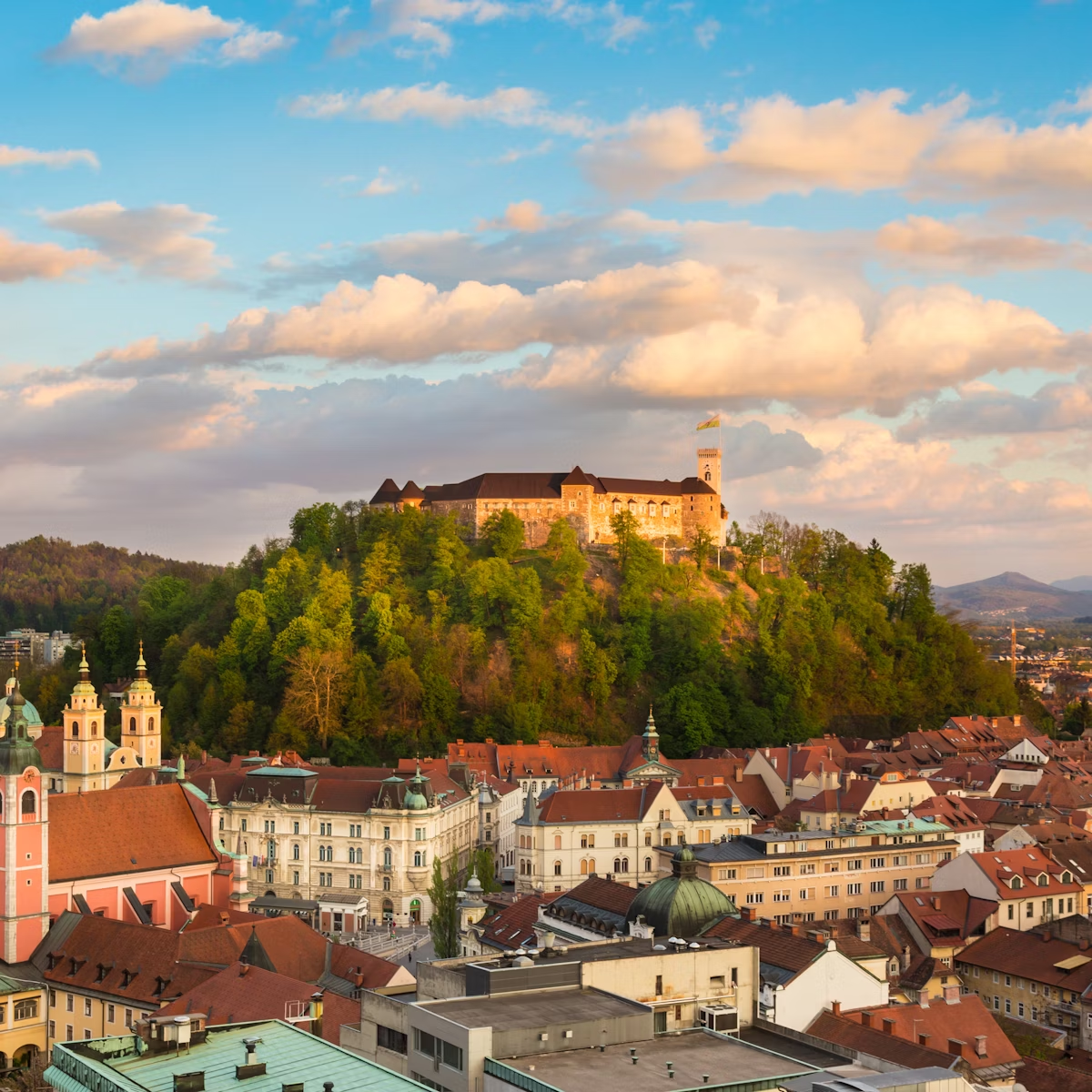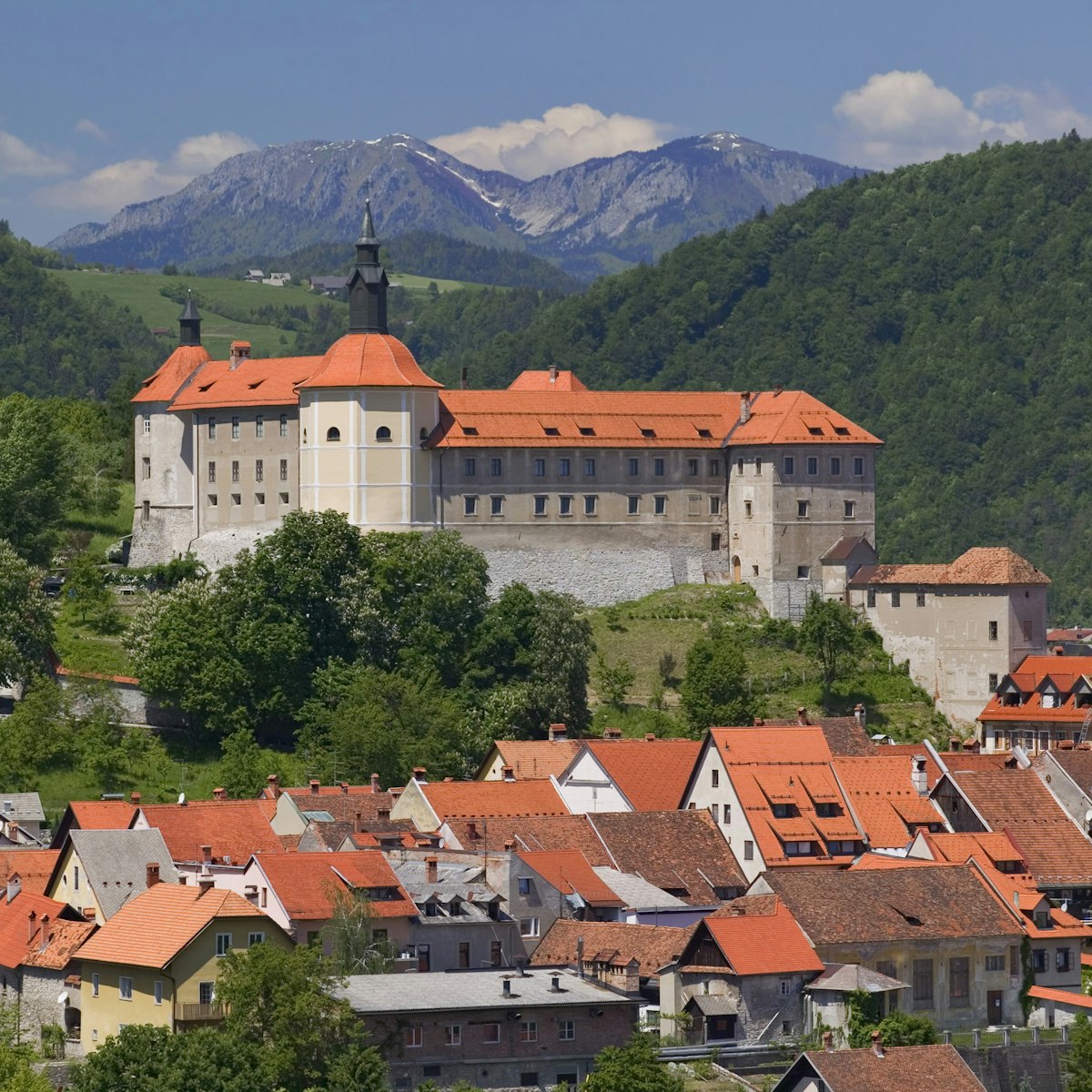Established in 1136 by the Cistercians (famous for their vows of silence), this abbey was for centuries the most important religious, economic, educational and cultural centre in Dolenjska. The walled monastery, an incredible combination of Romanesque, Gothic, Renaissance and baroque architecture, currently has 14 monks in residence. Only 35km from Ljubljana, it's an easy day trip from the capital.
Entry is on the east side of the monastery, across a small stream. On the north side of the central courtyard is the Old Prelature, a 17th-century Renaissance building which contains the Slovene Museum of Christianity (Muzej Krščanstva na Slovenskem), a hotchpotch mix of antique clocks, furniture, icons and old documents (though note, the medieval ones are facsimiles).
On the west side of the courtyard is the Abbey Church (1156), a buttressed, three-nave Romanesque cathedral rebuilt in the baroque style in the 17th and 18th centuries. Look inside for the Renaissance red-marble tombstone of Abbot Jakob Reinprecht in the north transept and the blue organ cupboard with eight angels (1747) in the choir loft. The greatest treasures here are the Stations of the Cross paintings (1766) by Fortunat Bergant.
South of the church is Stična’s vaulted cloister, mixing Romanesque and early Gothic styles. The arches and vaults are adorned with frescoes of the prophets and Old Testament stories and allegorical subjects. The carved stone faces on the west side were meant to show human emotions and vices.
On the south side of the cloister is a typically baroque monastic refectory, with an 18th-century pink ceiling with white stucco decoration. Neff’s Abbey, built in the mid-16th century by Abbot Volbenk Neff, runs to the west. The arches in the vestibule on the ground floor are painted with a dense network of leaves, blossoms, berries and birds.
The Cistercians sell their own products (honey, wine, herbal teas, liqueurs) in a small shop inside the complex.
Stična is served by up to a dozen buses a day from Ljubljana (€4.10, 50 minutes, 35km) on weekdays, with fewer on weekends. Another option is the train, which stops at Ivančna Gorica, a larger town 2.5km south of the abbey; frequent Ljubljana–Novo Mesto trains stop here (€3.44, 50 minutes in either direction).





